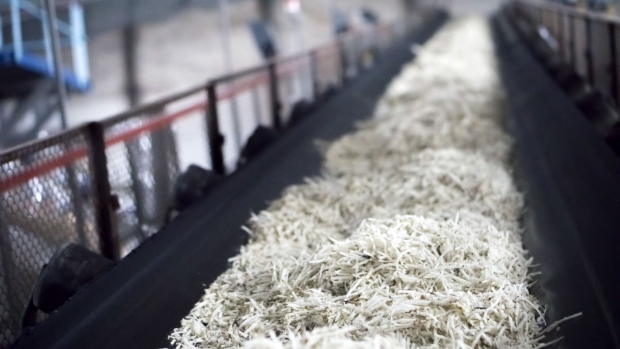Apr 17, 2024
Ukraine’s Astarta Targets More Sugar Sales Outside EU Amid Curbs
, Bloomberg News

(Bloomberg) -- Ukrainian sugar producer Astarta Holding Plc plans to step up exports outside of the European Union as the bloc tightens rules on imports from the country.
While Ukraine is a relatively small sugar grower, EU nations like Romania and Poland have been a key destination for its shipments. But the bloc has moved to restrict flows of Ukrainian foodstuffs — including sugar, poultry and corn — to soothe concerns by farmers upset about oversupply filtering into their market.
That’s prompting Astarta to increase sales to existing markets outside the EU and target new ones.
“We are already delivering sugar to countries outside the EU,” Chief Executive Officer Viktor Ivanchyk said in an interview in Kyiv. “Fortunately there are countries which need our product, first of all in the Mediterranean and West Africa.”
The company plans to ship 10,000 tons of sugar this month from so-called Big Odesa ports, which started being used again for seaborne sales of the sweetener in March. Since Moscow’s invasion, Astarta had been exporting agricultural products by rail, trucks and Danube ports. The company will still sell to the EU within quotas, after which tariffs would kick in.
Food Trade Headaches Come Back Into Spotlight: Supply Lines
Ukraine’s agricultural exports — which also include grains and oilseeds — have recovered since being hobbled at the start of the war, amid Ukrainian military efforts to safeguard vessels leaving Black Sea ports. Astarta has exported 800,000 tons of grain by sea since the season began in July.
Still, operations remain at risk from Russian attacks, including on energy infrastructure that could cause power cuts. In 2022, the company was forced to spend about €300,000 to buy electricity generators to secure supplies.
Good weather and crop conditions of winter grains mean Astarta has for now raised expectations for this year’s harvest. Spring plantings of sugar beets, sunflowers, corn and soybeans started earlier than usual and are almost complete for some crops due to warm weather in April.
©2024 Bloomberg L.P.






